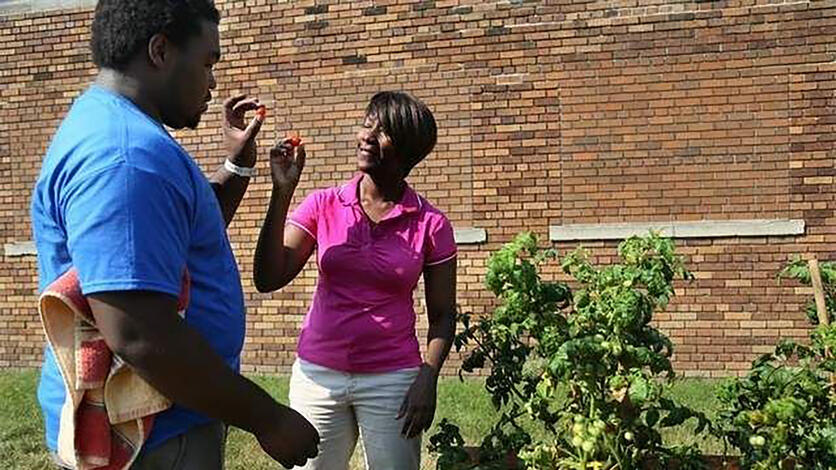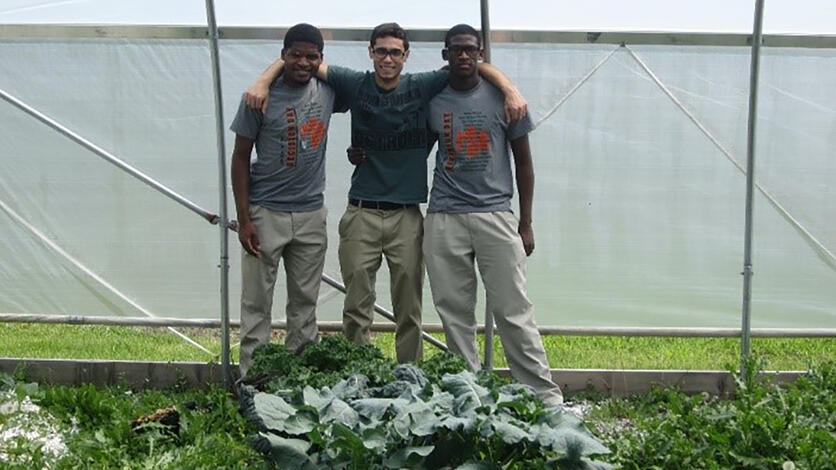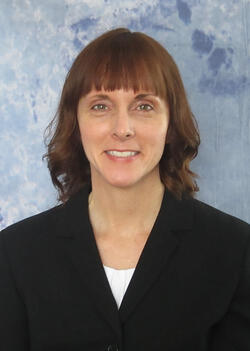
This article was originally published on September 8, 2021.
It used to be more typical to think of the flow of innovative ideas between educators in academia and those working in schools as mostly from the former to the latter. But as the educational system has become more fractured and complex, and teachers face challenges specific to their students’ geography and demographics, the on-the-ground knowledge of innovative teachers is getting far more critical attention. A great case study is a recent project led by UM-Dearborn Education Professor Julie Anne Taylor, which takes an intense look at a learning garden run by Detroit teacher Marquita Reese. School-based garden programs aren’t, of course, a new idea. What makes Reese’s learning garden project special, says Taylor, are the educational content areas she uses to frame her students’ experiences of the garden. Typically, learning gardens in schools are used as a platform to teach kids about nutrition, agriculture and STEM topics. And while Reese’s work does cover those things, for her, the garden is really a launchpad to think critically about topics we’d normally associate with social studies curriculum: social inequality, food insecurity, sustainable communities, Black male identities, and how to tug at the levers of power to transform society.

Reese started her garden in a way that many Detroit gardens start — on a piece of weedy, nondescript land that had a prior life as something else. In her case, the site was the former practice field of the football team at her small, all-boys alternative high school, and she recruited several students to help with the field’s initial transformation. As in other school garden programs, they prepped the soil, planted seedlings, battled pests and diseases, and learned how to harvest, cook and even sell their produce. That part Reese characterizes as “easy.” The bigger challenge is what she calls the “why” part — her shorthand for a broad slate of socially focused topics that assert themselves when you start thinking critically about food systems. Why is it that it’s hard to find fresh produce in many parts of the city? Why do so many people in the community struggle with heart disease and diabetes? Why is it that until the garden existed, one of the boys had never eaten a raw green bean? How did it come to be that large, multinational corporations control so much of the food supply? How could they learn to use environmentally sustainable methods so future generations still have a world where they can live and grow things? And how could they find allies to help them sustain their work and build a better world?

These were just a few of the themes Reese and her students explored during a program where she says there was almost no topic they didn’t discuss. It was emotionally intense at times, and personal too, as the socially charged themes brought to the surface many challenges the young men faced in their own lives. But digging this deep helped Reese turn their attention to what she says is really the end goal of the program: learning how to create a better world. That phase of the work took all kinds of forms. To support the project as it expanded, the students learned to write grant proposals, many of which were funded, including one from Senator Debbie Stabenow. On another assignment, each young man was charged with landing a business sponsorship, which required doing research about area companies, their ownership, and their missions — and then making an in-person pitch for funding. They went on local TV and radio, giving interviews that forced them to overcome their nerves about public speaking and be articulate about their cause. They even learned to cook with the food they’d grown, often incorporating cuisine styles from metro Detroit’s diverse immigrant communities through connections they’d made.

“I find Ms. Reese’s work to be remarkable because it’s so interdisciplinary. She addresses so many social studies standards and methods through a learning garden,” Taylor says. “We typically don’t look at learning gardens through the lens of social studies, but her approach is rich. The depth of what she was doing with the students and what they were walking away understanding made such a huge impression on me.”
Inspired by Reese’s work, Taylor spent two years documenting the project, its methods, and its impacts on the young men, all of which were recently summarized in a new paper published in Social Studies Teaching and Learning. (The paper was co-authored with UM-Dearborn Associate Professor Dara Hill and doctoral student Jerry Tait.) In particular, the intimate portraits of the students’ growth that emerge through detailed interviews suggest that learning gardens have much wider educational applications than previously thought, including for social studies educators.
Tait, who’s also an Assistant Principal at Cooke STEM Academy in Detroit, said he’d personally love to bring something like this to his school. They already have a garden and a greenhouse, which gives them a running start. The challenge, aside from funding, he says, will be replicating the fluid interdisciplinary approach that Reese brought to the table as a team of one. But he and Taylor think multi-educator teams from social studies, STEM disciplines and art could be one viable way to replicate some of the magic they witnessed in one very special school garden in Detroit.
###
Story by Lou Blouin. Want to dig deeper into Reese’s work and the experiences of her students? Check out Taylor, Hill and Tait’s article “Learning Gardens and Social Education in Detroit,” which features interviews with Reese and her students. If you’re a member of the media and would like to interview Taylor or Reese about this topic, please drop us an email at UMDearborn-News@umich.edu and we’ll put you in touch.




